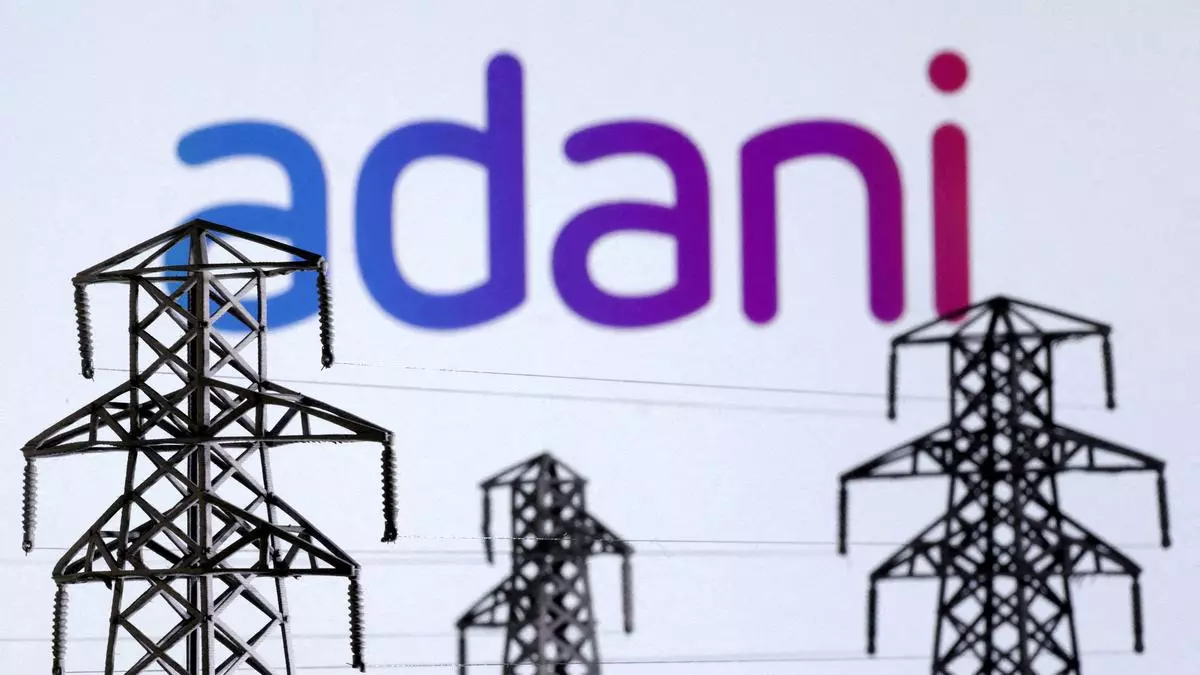Technology
Safaricom Expands M-PESA Global to Ethiopia, Promoting Cross-Border Financial Inclusion
M-PESA Global enables customers to easily send mobile money from Kenya to Ethiopia, providing a convenient and efficient solution for cross-border fund transfers. This expansion aligns with Safaricom’s larger strategy to boost mobile money adoption and expand its presence in Ethiopia by leveraging its expertise in digital financial services.

:Safaricom expands M-PESA to Ethiopia, enabling seamless cross-border payments, boosting financial inclusion, and fostering regional trade and economic growth.
By Charles Wachira
Safaricom, Kenya’s leading telecommunications provider, has launched its M-PESA Global service in Ethiopia, marking a significant step towards enhancing cross-border financial transactions between the two East African nations.
This move is expected to foster economic growth, facilitate trade, and improve financial inclusion across the region.
M-PESA Global allows customers to make mobile money transactions seamlessly from Kenya to Ethiopia, offering a convenient and efficient way to transfer funds across borders.
This expansion is part of Safaricom’s broader strategy to increase mobile money use and penetration in Ethiopia, leveraging its expertise in digital financial services.
Esther Waititu, Safaricom’s Chief Financial Services Officer, emphasized the strategic importance of this collaboration, stating, “This partnership underscores our commitment to delivering innovative financial solutions that meet the dynamic needs of our customers. By enhancing access to cross-border transfers, we are empowering individuals and businesses across the region.”
Benefits for Ethiopia:
The introduction of M-PESA Global in Ethiopia is expected to have several positive impacts:
- Enhanced Financial Inclusion: It will enable more Ethiopians to access formal financial services, promoting financial inclusion and reducing reliance on cash transactions.
- Economic Growth: Facilitating easier and more affordable cross-border transactions will stimulate economic activity, benefiting local businesses and contributing to overall economic growth.
- Trade Facilitation: Simplifying cross-border payments will facilitate trade between Kenya and Ethiopia, supporting importers, exporters, and small businesses engaged in regional commerce.
Opportunities for Individuals and Businesses:
For individuals, the availability of M-PESA Global means easier remittances and financial support from family members abroad. Businesses can leverage the service for payments, improving efficiency and reducing transaction costs associated with cross-border trade.
Safaricom’s expansion into Ethiopia with M-PESA Global reflects a strategic alignment with Ethiopia’s economic development goals and underscores the company’s commitment to driving digital transformation across the region.
About Safaricom:
Safaricom PLC is Kenya’s leading telecommunications company and pioneer in mobile money services through its widely recognized M-PESA platform. With over 50 million customers and a robust network infrastructure, Safaricom continues to innovate and expand its services to meet the evolving needs of consumers and businesses in East Africa.
This expansion into Ethiopia represents a significant milestone in Safaricom’s regional strategy and reinforces its position as a key player in driving digital and financial inclusion initiatives across East Africa
Keywords:M-PESA Global Ethiopia:Safaricom expansion:Cross-border transactions:Financial inclusion:Mobile money East Africa
Technology
MTN Uganda Reports 29.6% Profit Rise to Shs 459.4bn in 2024
MTN Uganda’s revenue from mobile data and MoMo services jumped over 20% year-on-year, driven by growing demand for digital financial solutions and a strong focus on expanding MoMo’s reach.

: MTN Uganda’s profit climbs by 29.6% to Shs 459.4bn for 2024’s first nine months, driven by digital growth, fintech, and network expansion strategies.
MTN Uganda reported a 29.6% increase in profit after tax, reaching Shs 459.4 billion for the first nine months of the year, compared to Shs 354.5 billion during the same period in 2023.
This growth reflects the telecom giant’s strategic focus on expanding digital services and enhancing network coverage to capture more market share in Uganda’s competitive telecommunications sector.
CEO Cites Strategic Expansion and Digital Focus
Chief Executive Officer Sylvia Mulinge attributed the profit jump to effective cost management and a strong emphasis on digital transformation.
“Our increased investment in infrastructure and focus on digital financial services continue to yield positive results, as seen in this remarkable growth,” she stated during the earnings release.
Fintech and Data Services Lead Revenue Growth
Mobile data and MTN Mobile Money (MoMo) services played a significant role, as revenue from these segments has grown by over 20% year-on-year.
With Uganda’s demand for digital financial solutions rapidly increasing, MTN Uganda’s focus on expanding MoMo has led to a substantial boost in customer uptake, contributing to a large portion of this year’s growth.
Investments in Network Infrastructure Pay Off
MTN Uganda’s ongoing investments in 4G and 5G network infrastructure have also proven profitable.
In 2024, the company increased its capital expenditure to Shs 200 billion, up from Shs 160 billion in 2023, to meet the growing demand for faster and more reliable internet. “MTN Uganda has successfully captured the increased demand for reliable and faster internet,” said Henry Tumusiime, a telecom analyst based in Kampala. “Their proactive approach to enhancing data service capabilities has kept them ahead, especially as the economy becomes more digitised.”
Youth-Focused Campaigns Expand Subscriber Base
MTN’s early 2024 campaign aimed at youth — offering affordable data bundles and free educational content — attracted over 500,000 new users, expanding its subscriber base to 17 million, up from 16.5 million in 2023. This campaign has been instrumental in further driving revenue growth.
Outlook: Commitment to Quality and Digital Inclusion
Looking forward, MTN Uganda remains focused on delivering high-quality, affordable services to enhance digital inclusion. “As we approach year-end, our strategy remains anchored on delivering quality service, ensuring affordability, and growing digital inclusion,” Mulinge added.
MTN Uganda’s performance aligns with MTN Group’s broader strategy to connect Africa and strengthen digital finance solutions across the continent.
Technology
Skyleader 600 Launch in Tanzania: Boosting Local Aircraft Manufacturing
The Skyleader 600 marks a pivotal moment for Tanzania, not only in aviation but in its broader industrial aspirations.
With its maiden landing at Julius Nyerere International Airport, the aircraft stands as a symbol of Tanzania’s growing capacity to innovate, manufacture, and compete on the global stage.

Discover Tanzania’s aviation breakthrough with the Skyleader 600, the first locally manufactured ultralight aircraft, unveiled at TIMEXPO 2024 in Dar es Salaam
By Charles Wachira
In a groundbreaking achievement for Tanzania and Africa’s aviation sector, AIRPLANE Africa Limited (AAL), based in Morogoro, launched the Skyleader 600, marking the first ultralight aircraft manufactured in the country.
The official unveiling took place at TIMEXPO 2024 in October 2024, setting a new milestone for local manufacturing and economic potential.
The Skyleader 600: A Game-Changer in African Aviation Designed with business travelers in mind, the Skyleader 600 can carry two passengers, offering a cost-effective alternative for long-distance travel.
The aircraft is praised for its modern design, affordability, and low maintenance costs.
Powered by petrol fuel, it addresses the growing demand for accessible and efficient transportation across Tanzania and the wider African market.
AAL’s Director, David Grolig, proudly remarked at the launch, “This is a historic moment not just for AIRPLANE Africa Limited, but for Tanzania. We have built something that will change the way people travel in this country and beyond.”
His statement reflects the company’s larger vision to transform Tanzania into a key player in ultralight aircraft manufacturing in Africa.
From Morogoro to the Skies: AAL’s Journey The journey to the Skyleader 600 began in 2019, when AIRPLANE Africa Limited was established in Morogoro.
The company blended local Tanzanian expertise with Czech aviation technology, a country renowned for its ultralight aircraft production.
This strategic collaboration has fostered a new generation of Tanzanian aviation professionals, thanks to internships and training programs designed to enhance skills and create jobs.
“The partnership with Czech aviation experts was crucial,” said Grolig. “It’s a blend of global expertise and local ambition. We’re showing that when we work together, we can achieve remarkable things.”
This combination has allowed AAL to tailor the Skyleader 600 to meet the unique needs of Africa’s business and private aviation sectors.
TIMEXPO 2024: Showcasing Tanzanian Innovation The TIMEXPO 2024 trade fair in Dar es Salaam served as the launch platform for the Skyleader 600.
This event, which highlights Tanzanian manufacturing, drew attention from global exhibitors and dignitaries.
The Minister for Industry and Trade was in attendance, noting the significance of AAL’s achievement: “This is a symbol of what we can achieve when we invest in our local industries. The government is committed to supporting such initiatives as they create jobs, foster innovation, and help us become more self-reliant.”
The launch has bolstered Tanzania’s image as a country capable of innovation, especially in high-tech sectors like aviation.
The Skyleader 600 is expected to open new economic opportunities in tourism, pilot training, and aircraft maintenance services.
Government Support and Economic Impact The Tanzanian government’s collaboration with AIRPLANE Africa Limited and its European partners has been key to the success of the Skyleader 600.
Support from regulatory authorities and the provision of trade incentives reflect the government’s commitment to fostering local industries that reduce reliance on imports.
Grolig acknowledged the government’s role, stating, “We couldn’t have done this without their backing. The government’s support has been essential in moving from concept to reality.”
This partnership is a model for public-private collaboration, particularly in industries like aviation that require significant investment and expertise.
Economic Potential and Future Growth The Skyleader 600’s production is expected to create ripple effects across Tanzania’s economy, from aviation services to job creation.
It provides an affordable transportation solution, not only for Tanzania but also for neighboring African markets.
AAL has ambitious plans to commercially sell the Skyleader 600, with Grolig hinting at future developments: “This is just the start. We plan to expand production, develop new models, and make Tanzania a leader in ultralight aircraft manufacturing in Africa.”
A Vision for the Future The Skyleader 600 represents a turning point for Tanzania, not just in aviation but in its broader industrial ambitions.
As the aircraft begins operations after its maiden landing at Julius Nyerere International Airport, it symbolizes Tanzania’s potential to innovate, manufacture, and compete on the global stage.
In a world where aviation is dominated by Western and Asian manufacturers, Tanzania, through AIRPLANE Africa Limited, is making its mark with the Skyleader 600—an ultralight aircraft that carries the hopes of a nation into the skies. Keywords: Skyleader 600 launch Tanzania ultralight aircraft manufacturing in Africa AIRPLANE Africa Limited TIMEXPO 2024 aviation showcase Tanzanian aviation industry growth
Keywords:Skyleader 600 launch Tanzania:Ultralight aircraft manufacturing in Africa: AIRPLANE Africa Limited:TIMEXPO 2024 aviation showcase:Tanzanian aviation industry growth
Technology
Adani Group’s Entry into Kenya’s Energy Sector Amid Controversies
The Adani-KETRACO deal offers the potential for major upgrades to Kenya’s power sector, but its long-term success hinges on transparency, environmental responsibility, and compliance with local regulations. Kenya’s past public-private partnerships have faced setbacks due to corruption, mismanagement, and lack of accountability, making oversight crucial for this project.

: Adani Energy Solutions partners with Kenya Electricity Transmission Company (KETRACO) to develop key power infrastructure in Kenya, marking the Indian conglomerate’s strategic expansion into East Africa. Despite past controversies, the deal signals major growth potential for Kenya’s energy sector.
By Charles Wachira
Indian billionaire Gautam Adani’s power transmission arm, Adani Energy Solutions, has taken a significant step into Kenya’s energy sector. The company recently inked a deal with the Kenya Electricity Transmission Company Limited (KETRACO) to develop, finance, and maintain key power infrastructure in the country. This partnership, a first for the Adani Group in East Africa, is set to bolster Kenya’s efforts to improve its electricity transmission capacity and meet growing energy demands. However, the deal also raises eyebrows due to past controversies surrounding Adani’s business practices and concerns about transparency.
The Significance for Kenya
For Kenya, the agreement with Adani Energy Solutions presents a much-needed boost to its power infrastructure. The country has been grappling with power shortages, frequent blackouts, and an aging grid that hampers industrial growth and investment. By partnering with Adani, KETRACO is looking to upgrade its transmission lines and expand capacity to handle more electricity from both renewable and conventional sources.
Kenya’s energy demand is projected to rise sharply over the next decade due to industrialization and urbanization, and this partnership comes at a critical time. The deal will help Kenya leverage private investment to improve its energy network, a key component of the government’s Vision 2030 economic blueprint.
In a statement following the signing of the agreement, KETRACO Managing Director Anthony Wamukota expressed optimism: “This partnership is a milestone for Kenya. We are aligning our energy infrastructure with global standards and taking a significant step toward improving the reliability and efficiency of power transmission in the country.”
Adani Energy Solutions will finance, construct, and maintain several key transmission projects. This includes extending transmission lines to remote areas and building advanced substations to improve grid stability, ensuring that more Kenyans have access to reliable electricity.
A Controversial Player
Despite the potential benefits, the deal has sparked concern among critics of the Adani Group, which has faced accusations of financial mismanagement and environmental violations in other markets. Adani’s business empire came under intense scrutiny in 2023 when U.S.-based short-seller Hindenburg Research accused the group of fraud and stock manipulation, causing a sharp drop in the value of Adani stocks. Though Adani has denied these allegations, the scandal led to increased scrutiny of its operations and governance.
Opposition figures in Kenya have raised concerns about the transparency of the deal with Adani, questioning whether the group’s controversial track record was adequately considered. Some have also pointed to potential environmental risks given Adani’s history with coal mining and power plants, which have attracted criticism for their impact on local communities and ecosystems in India and other countries.
Kenyan energy expert Michael Otieno remarked: “The entry of Adani Energy into Kenya could provide significant upgrades to our power grid, but it also comes with risks. We must ensure that the company adheres to Kenya’s environmental and governance standards, especially given the controversies surrounding its global operations.”
What the Deal Means for Adani
For Adani Energy Solutions, this partnership marks its formal entry into East Africa, expanding the company’s African footprint. The Kenyan project aligns with Adani’s broader strategy of investing in energy infrastructure in emerging markets. It allows the company to capitalize on Africa’s growing demand for electricity and play a role in shaping the continent’s energy future.
Adani has previously invested in Africa, with mixed results. In Egypt, the company invested in a solar energy project as part of the country’s push toward renewable energy. Meanwhile, in South Africa, Adani Group made inroads into the coal sector, though the venture faced stiff opposition from environmentalists and local communities due to concerns over pollution and displacement.
Despite these challenges, Adani’s ability to secure major energy projects in Africa underscores its growing influence. Kenya’s deal is particularly strategic for Adani, as it allows the company to tap into East Africa’s potential and position itself as a key player in the region’s energy transition.
Africa’s Growing Importance for Adani
Adani’s investments in Africa reflect a larger trend of Indian companies seeking opportunities on the continent, especially in sectors like energy, infrastructure, and technology. Africa’s growing middle class, coupled with its vast untapped resources, makes it an attractive destination for investors.
In Mozambique, the Adani Group has invested in coal mining operations, exporting millions of tons of coal to global markets. However, the venture has drawn criticism for its environmental impact and displacement of local communities. In Nigeria, Adani has been exploring energy sector investments, though these plans have not yet materialized on a large scale.
Kenya could serve as a springboard for Adani to deepen its presence in East Africa, where countries like Tanzania and Uganda are also seeking private sector partners to improve their energy infrastructure.
The Road Ahead
While the Adani-KETRACO deal could bring significant upgrades to Kenya’s power sector, the long-term success of the partnership will depend on transparency, environmental stewardship, and adherence to local regulations. Kenya has learned hard lessons from past public-private partnerships that failed to deliver expected results due to corruption, mismanagement, and lack of accountability.
Kenya’s energy future holds immense potential, but it will require careful oversight to ensure that partnerships like the one with Adani Energy Solutions deliver the promised benefits without repeating the mistakes of the past.
As Gautam Adani’s company makes its official entry into Kenya, it opens a new chapter in both the country’s energy ambitions and Adani’s expansion into Africa—a relationship that will be closely watched by stakeholders across the continent.
In the words of Adani Energy Solutions CEO, “This project is part of our commitment to developing sustainable, reliable, and efficient energy infrastructure across Africa. We look forward to contributing to Kenya’s energy goals and playing a role in its growth story.”
With high stakes and significant potential, the Adani-KETRACO deal is poised to shape Kenya’s energy landscape and drive broader discussions on the role of international players in the country’s development.
Keywords:Adani Energy Kenya:Kenya power infrastructure:KETRACO Adani deal:Adani Africa investments:Adani Group East Africa expansion
-

 Business & Money8 months ago
Business & Money8 months agoEquity Group Announces Kshs 15.1 Billion Dividend Amid Strong Performance
-

 Politics2 months ago
Politics2 months agoFred Okengo Matiang’i vs. President William Ruto: A 2027 Election Showdown
-

 Politics2 months ago
Politics2 months agoIchung’wah Faces Mt. Kenya Backlash Over Gachagua Impeachment Support
-

 Politics4 months ago
Politics4 months agoPresident Ruto’s Bold Cabinet Dismissal Sparks Hope for Change
-

 Politics5 months ago
Politics5 months agoKenya Grapples with Investor Confidence Crisis Amid Tax Protest Fallout
-

 Politics4 months ago
Politics4 months agoPresident Ruto’s Lavish Spending Amid Kenya’s Economic Struggles Sparks Outrage
-

 Politics3 months ago
Politics3 months agoJohn Mbadi Takes Over Kenya’s Treasury: Challenges Ahead
-

 Business & Money1 week ago
Business & Money1 week agoMeet Kariuki Ngari: Standard Chartered Bank’s new CEO of Africa. What’s Next?





